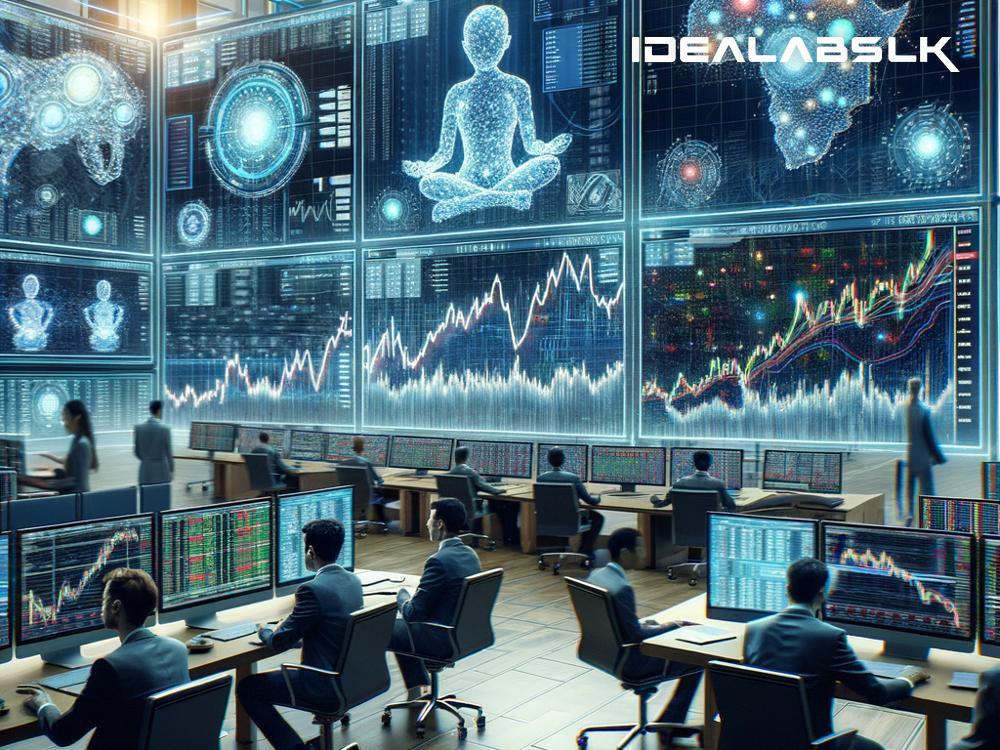AI for Trading: Simplifying the Future of Stock Market Predictions
The stock market can often seem like a giant, unpredictable beast. Many of us have heard stories or seen movies where traders are glued to screens full of fluctuating numbers, trying to predict the next big stock movement. For a long time, these predictions have been made using traditional methods, such as analyzing company performance, market trends, and economic indicators. However, there's a new player in town revolutionizing how we approach stock market predictions: Artificial Intelligence (AI).
AI, in simple terms, is technology that enables machines to simulate human intelligence. It's like giving a computer a brain, allowing it to learn, analyze, and make decisions. In the world of trading, leveraging AI technology means we can process and analyze vast amounts of market data at speeds and depths impossible for humans. But what does this mean for stock market predictions, and how is it changing the game?
Making Sense of Massive Data
First and foremost, AI excels at handling and making sense of massive amounts of data. Every day, the stock market generates an overwhelming amount of data, from stock prices and trading volumes to financial news and social media sentiment. For a human, making sense of this data in real-time is virtually impossible. AI, however, can sift through this data mountain quickly and efficiently, spotting trends and patterns that might indicate where a stock is headed.
Speed and Efficiency
Speed is of the essence in the stock market. Prices can change in a fraction of a second, and being even a millisecond behind can mean the difference between profit and loss. AI systems can operate far faster than any human, executing trades at speeds and with a precision that significantly reduces the risk and increases the potential for profit.
Predictive Analytics
One of the most exciting applications of AI in trading is predictive analytics. By analyzing past market behavior and outcomes, AI algorithms can learn to forecast future market movements. These predictions aren't just wild guesses; they're calculated forecasts based on vast historical data and complex mathematical models. While no prediction is ever 100% accurate, AI's ability to churn through data and identify potential trends can offer traders an edge over traditional prediction methods.
Risk Management
Risk is an inherent part of trading. However, AI can help traders better manage and mitigate these risks. By analyzing market conditions and a trader's portfolio, AI can recommend diversification strategies, suggest when to buy or sell for maximum profit, and even predict potential market downturns. This doesn't just help in maximizing profits but also in minimizing losses, a critical aspect of successful trading.
The Human Element
Despite its capabilities, AI is not replacing the human element in trading. Instead, it's augmenting it. Humans are still crucial for their ability to understand context, make ethical decisions, and bring creative strategies to the table. AI, on the other hand, excels in data analysis, processing speeds, and executing predefined strategies. The future of trading lies in combining the best of both worlds – the intuitive and emotional intelligence of humans with the analytical power and speed of AI.
Ethical and Regulatory Considerations
As with any technology, the use of AI in trading brings its own set of ethical and regulatory considerations. Concerns about privacy, data security, and the potential for market manipulation are at the forefront. As we move forward, it's crucial that these issues are addressed through transparent practices and robust regulatory frameworks to ensure that AI's potential is harnessed responsibly and for the benefit of all market participants.
Conclusion
The integration of AI into the world of trading is transforming how stock market predictions are made. By leveraging AI's ability to analyze massive datasets, execute trades at unprecedented speeds, and manage risks, traders are equipped with tools that were unimaginable just a few decades ago. However, this doesn't mean that AI is infallible. The stock market will always have an element of unpredictability, and the human touch remains invaluable. Combining AI's analytical power with human judgment and creativity is where the future of trading truly lies, promising a landscape that’s not only more efficient and profitable but also more inclusive and diverse.

